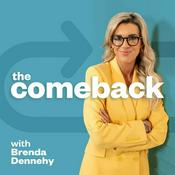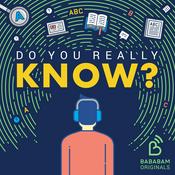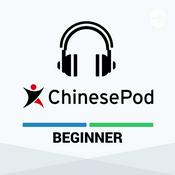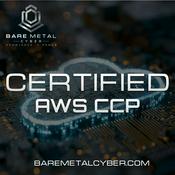375 episodes
375 | Why Most CCPT Therapists Crumble Under Pressure (And What To Do About It!)
20/2/2026 | 20 mins.In this episode, I walk you through the Summit Framework — the developmental roadmap for mastery in child-centered play therapy that I presented at the Field of Dreams training. I believe one of the greatest challenges in our field is that we've never clearly defined how a therapist progresses toward true mastery. We learn the skills. We memorize the principles. But we're rarely shown how to stabilize under pressure and refine our foundation before moving higher. And when we skip that step, we crumble.
Mastery in CCPT is not about advancing quickly into insight-level work. It's about disciplined refinement of the fundamentals. If reflective responding breaks down when content is uncomfortable, if limit-setting collapses under chaos, if steadiness disappears when pressure rises — that's where the work is. Just like elite athletes still hit off a tee and master musicians still practice scales, we must return to basics in order to strengthen the tiers beneath us. In this episode, I outline the four levels of the Summit Framework and explain how video-based self-review becomes the pathway to real growth.
The Field of Dreams training is now available on demand. You can get more information at playtherapynow.com. If you've ever wondered where you truly are developmentally in the model — and what it would take to move toward genuine mastery — this framework gives you the path. When we build depth before height, the entire field changes.
PlayTherapyNow.com is my HUB for everything I do! playtherapynow.com. Sign up for my email newsletter, stay ahead with the latest CCPT CEU courses, personalized coaching opportunities and other opportunities you need to thrive in your CCPT practice. If you click one link in these show notes, this is the one to click!
Topical Playlists! All of the podcasts are now grouped into topical playlists on YouTube. Please go to https://www.youtube.com/kidcounselorbrenna/playlists to view them.
If you would like to ask me questions directly, check out www.ccptcollective.com, where I host two weekly Zoom calls filled with advanced CCPT case studies and session reviews, as well as member Q&A. You can take advantage of the two-week free trial to see if the CCPT Collective is right for you.
Ask Me Questions: Call (813) 812-5525, or email: [email protected]
Brenna's CCPT Hub: https://www.playtherapynow.com
CCPT Collective (online community exclusively for CCPTs): https://www.ccptcollective.com
Podcast HQ: https://www.playtherapypodcast.com
APT Approved Play Therapy CE courses: https://childcenteredtraining.com
Facebook: https://facebook.com/playtherapypodcast
Common References:
Cochran, N., Nordling, W., & Cochran, J. (2010). Child-Centered Play Therapy (1st ed.). Wiley.
VanFleet, R., Sywulak, A. E., & Sniscak, C. C. (2010). Child-centered play therapy. Guilford Press.
Landreth, G.L. (2023). Play Therapy: The Art of the Relationship (4th ed.). Routledge.
Landreth, G.L., & Bratton, S.C. (2019). Child-Parent Relationship Therapy (CPRT): An Evidence-Based 10-Session Filial Therapy Model (2nd ed.). Routledge. https://doi.org/10.4324/9781315537948
Benedict, Helen. Themes in Play Therapy. Used with permission to Heartland Play Therapy Institute.- In this Q&A episode, I respond to a question from a school-based, mobile play therapist navigating what to do when children want to preserve, hide, or protect things they build in session. I unpack how this dynamic shifts when you are not in a static playroom and instead are setting up and tearing down each week. I explain how setting clear expectations from the very beginning protects the therapeutic relationship and prevents children from feeling betrayed when items are moved, found, or reset.
I also walk through the clinical judgment involved in deciding when something can reasonably be preserved and when it must be dismantled for the sake of other children's access. More importantly, I discuss how moments of disappointment, frustration, or perceived loss—when they arise organically—can be therapeutically meaningful. These are not agenda-driven opportunities we create, but natural experiences children sometimes need in order to build frustration tolerance, regulation, and emotional flexibility. Finally, I share practical considerations about Legos and why many CCPT playrooms choose alternative building materials.
PlayTherapyNow.com is my HUB for everything I do! playtherapynow.com. Sign up for my email newsletter, stay ahead with the latest CCPT CEU courses, personalized coaching opportunities and other opportunities you need to thrive in your CCPT practice. If you click one link in these show notes, this is the one to click!
Topical Playlists! All of the podcasts are now grouped into topical playlists on YouTube. Please go to https://www.youtube.com/kidcounselorbrenna/playlists to view them.
If you would like to ask me questions directly, check out www.ccptcollective.com, where I host two weekly Zoom calls filled with advanced CCPT case studies and session reviews, as well as member Q&A. You can take advantage of the two-week free trial to see if the CCPT Collective is right for you.
Ask Me Questions: Call (813) 812-5525, or email: [email protected]
Brenna's CCPT Hub: https://www.playtherapynow.com
CCPT Collective (online community exclusively for CCPTs): https://www.ccptcollective.com
Podcast HQ: https://www.playtherapypodcast.com
APT Approved Play Therapy CE courses: https://childcenteredtraining.com
Facebook: https://facebook.com/playtherapypodcast
Common References:
Cochran, N., Nordling, W., & Cochran, J. (2010). Child-Centered Play Therapy (1st ed.). Wiley.
VanFleet, R., Sywulak, A. E., & Sniscak, C. C. (2010). Child-centered play therapy. Guilford Press.
Landreth, G.L. (2023). Play Therapy: The Art of the Relationship (4th ed.). Routledge.
Landreth, G.L., & Bratton, S.C. (2019). Child-Parent Relationship Therapy (CPRT): An Evidence-Based 10-Session Filial Therapy Model (2nd ed.). Routledge. https://doi.org/10.4324/9781315537948
Benedict, Helen. Themes in Play Therapy. Used with permission to Heartland Play Therapy Institute. - In this episode, I respond to a question about a nine-year-old who presents as mature, responsible, and "put together," yet shows strong perfectionistic and people-pleasing tendencies in session. I unpack what is often happening beneath that polished exterior — faking good, fear of judgment, low self-esteem, and a deep resistance to vulnerability. When a child thrives in collaborative activities but withdraws during independent play, that often signals discomfort with ownership, mistakes, and being fully seen.
I also address what it means when a child consistently rejects reflected feelings. In many cases, it's not that the reflection is wrong — it's that naming the emotion makes it real. For children who lack emotional vocabulary or have learned to suppress their internal experience, acknowledging feelings can feel threatening. I discuss how small enlargements, gentle juxtaposition, and patient adherence to the model help build self-trust, identity, and emotional awareness over time. Ultimately, this episode is a reminder to trust the process, recognize incongruence for what it is, and allow perfectionistic children the safety they need to gradually let their guard down.
PlayTherapyNow.com is my HUB for everything I do! playtherapynow.com. Sign up for my email newsletter, stay ahead with the latest CCPT CEU courses, personalized coaching opportunities and other opportunities you need to thrive in your CCPT practice. If you click one link in these show notes, this is the one to click!
Topical Playlists! All of the podcasts are now grouped into topical playlists on YouTube. Please go to https://www.youtube.com/kidcounselorbrenna/playlists to view them.
If you would like to ask me questions directly, check out www.ccptcollective.com, where I host two weekly Zoom calls filled with advanced CCPT case studies and session reviews, as well as member Q&A. You can take advantage of the two-week free trial to see if the CCPT Collective is right for you.
Ask Me Questions: Call (813) 812-5525, or email: [email protected]
Brenna's CCPT Hub: https://www.playtherapynow.com
CCPT Collective (online community exclusively for CCPTs): https://www.ccptcollective.com
Podcast HQ: https://www.playtherapypodcast.com
APT Approved Play Therapy CE courses: https://childcenteredtraining.com
Facebook: https://facebook.com/playtherapypodcast
Common References:
Cochran, N., Nordling, W., & Cochran, J. (2010). Child-Centered Play Therapy (1st ed.). Wiley.
VanFleet, R., Sywulak, A. E., & Sniscak, C. C. (2010). Child-centered play therapy. Guilford Press.
Landreth, G.L. (2023). Play Therapy: The Art of the Relationship (4th ed.). Routledge.
Landreth, G.L., & Bratton, S.C. (2019). Child-Parent Relationship Therapy (CPRT): An Evidence-Based 10-Session Filial Therapy Model (2nd ed.). Routledge. https://doi.org/10.4324/9781315537948
Benedict, Helen. Themes in Play Therapy. Used with permission to Heartland Play Therapy Institute. 372 | Why This Podcast Is Unapologetically Child-Centered: The Purpose of the Play Therapy Podcast
10/2/2026 | 19 mins.In this episode, I pause and recenter on the why behind this podcast and the work I'm committed to in the play therapy field. With a recent surge of new listeners, I felt it was important to clearly articulate what this space represents and why Child-Centered Play Therapy matters now more than ever. I reflect on the origins of play therapy, the shift toward integrative and eclectic approaches, and my growing concern that children are becoming participants in an unproven experiment rather than recipients of a model we know works.
I share why I believe full adherence to a single, empirically supported model—particularly CCPT—is not only clinically effective, but ethically necessary. When therapists are asked to integrate everything, they often feel confused, burned out, and disconnected from their work. In contrast, clinicians who go all-in on CCPT describe clarity, confidence, and transformational outcomes for children and families. This episode is both a reaffirmation of the purpose of this podcast and an invitation to reflect on your own theoretical identity, fidelity to a model, and commitment to truly seeing and honoring children.
PlayTherapyNow.com is my HUB for everything I do! playtherapynow.com. Sign up for my email newsletter, stay ahead with the latest CCPT CEU courses, personalized coaching opportunities and other opportunities you need to thrive in your CCPT practice. If you click one link in these show notes, this is the one to click!
Topical Playlists! All of the podcasts are now grouped into topical playlists on YouTube. Please go to https://www.youtube.com/kidcounselorbrenna/playlists to view them.
If you would like to ask me questions directly, check out www.ccptcollective.com, where I host two weekly Zoom calls filled with advanced CCPT case studies and session reviews, as well as member Q&A. You can take advantage of the two-week free trial to see if the CCPT Collective is right for you.
Ask Me Questions: Call (813) 812-5525, or email: [email protected]
Brenna's CCPT Hub: https://www.playtherapynow.com
CCPT Collective (online community exclusively for CCPTs): https://www.ccptcollective.com
Podcast HQ: https://www.playtherapypodcast.com
APT Approved Play Therapy CE courses: https://childcenteredtraining.com
Facebook: https://facebook.com/playtherapypodcast
Common References:
Cochran, N., Nordling, W., & Cochran, J. (2010). Child-Centered Play Therapy (1st ed.). Wiley.
VanFleet, R., Sywulak, A. E., & Sniscak, C. C. (2010). Child-centered play therapy. Guilford Press.
Landreth, G.L. (2023). Play Therapy: The Art of the Relationship (4th ed.). Routledge.
Landreth, G.L., & Bratton, S.C. (2019). Child-Parent Relationship Therapy (CPRT): An Evidence-Based 10-Session Filial Therapy Model (2nd ed.). Routledge. https://doi.org/10.4324/9781315537948
Benedict, Helen. Themes in Play Therapy. Used with permission to Heartland Play Therapy Institute.- In this episode, I address a topic I've been getting more and more questions about: children who present with obsessive or compulsive behaviors that mirror OCD. I explain why I feel OCD is often not an appropriate childhood diagnosis and why these behaviors are best understood as manifestations of unmanageable anxiety combined with perfectionism and an intense need for control. When parents come in focused on eliminating specific behaviors, I walk through why that approach misses the heart of the issue and risks placing an agenda on the child that undermines the therapeutic process.
I outline how child-centered play therapy is uniquely suited to this presentation by addressing the underlying anxiety rather than the behaviors themselves. I discuss what these children often look like in the playroom, including rigid, imperative-driven thinking, and how elevating reflective responding—especially feelings—and gently contrasting wants versus reality helps children loosen their grip on control over time. The goal is never to "fix" the rituals, but to relieve the child of the burden of believing they must keep the world from falling apart. When anxiety decreases and emotional vocabulary grows, the behaviors no longer need to exist.
PlayTherapyNow.com is my HUB for everything I do! playtherapynow.com. Sign up for my email newsletter, stay ahead with the latest CCPT CEU courses, personalized coaching opportunities and other opportunities you need to thrive in your CCPT practice. If you click one link in these show notes, this is the one to click!
Topical Playlists! All of the podcasts are now grouped into topical playlists on YouTube. Please go to https://www.youtube.com/kidcounselorbrenna/playlists to view them.
If you would like to ask me questions directly, check out www.ccptcollective.com, where I host two weekly Zoom calls filled with advanced CCPT case studies and session reviews, as well as member Q&A. You can take advantage of the two-week free trial to see if the CCPT Collective is right for you.
Ask Me Questions: Call (813) 812-5525, or email: [email protected]
Brenna's CCPT Hub: https://www.playtherapynow.com
CCPT Collective (online community exclusively for CCPTs): https://www.ccptcollective.com
Podcast HQ: https://www.playtherapypodcast.com
APT Approved Play Therapy CE courses: https://childcenteredtraining.com
Facebook: https://facebook.com/playtherapypodcast
Common References:
Cochran, N., Nordling, W., & Cochran, J. (2010). Child-Centered Play Therapy (1st ed.). Wiley.
VanFleet, R., Sywulak, A. E., & Sniscak, C. C. (2010). Child-centered play therapy. Guilford Press.
Landreth, G.L. (2023). Play Therapy: The Art of the Relationship (4th ed.). Routledge.
Landreth, G.L., & Bratton, S.C. (2019). Child-Parent Relationship Therapy (CPRT): An Evidence-Based 10-Session Filial Therapy Model (2nd ed.). Routledge. https://doi.org/10.4324/9781315537948
Benedict, Helen. Themes in Play Therapy. Used with permission to Heartland Play Therapy Institute.
More Education podcasts
Trending Education podcasts
About Play Therapy Podcast: A Master-Class in Child-Centered Play Therapy
Your source for centered and focused Play Therapy coaching. A "Master-Class" in Play Therapy. Breaking down the barriers to high-quality Child-Centered Play Therapy (CCPT) education. No paywalls, no ads, no fluff... all content — just expert, accessible training for every play therapist, free of charge.
Podcast websiteListen to Play Therapy Podcast: A Master-Class in Child-Centered Play Therapy, The Sinead Says Podcast and many other podcasts from around the world with the radio.net app

Get the free radio.net app
- Stations and podcasts to bookmark
- Stream via Wi-Fi or Bluetooth
- Supports Carplay & Android Auto
- Many other app features
Get the free radio.net app
- Stations and podcasts to bookmark
- Stream via Wi-Fi or Bluetooth
- Supports Carplay & Android Auto
- Many other app features


Play Therapy Podcast: A Master-Class in Child-Centered Play Therapy
Scan code,
download the app,
start listening.
download the app,
start listening.









































